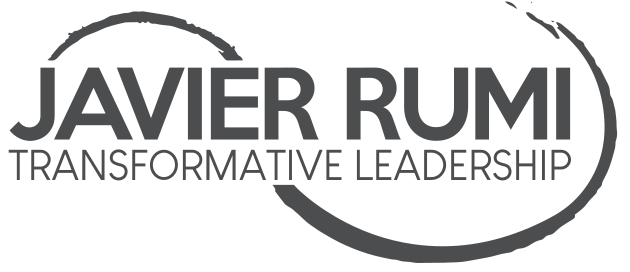How good of a leader are you?
If you’d get to evaluate your ability and effectiveness to lead, inspire, and motivate others on a scale from 1, ineffective, to 5, extraordinary. How’d you score yourself?
Now change seats, and take the place of people working with you; How would they rate your leadership and motivational skills? Would they agree with you?
It is likely that they’ll give you a lower grade than the one you gave to yourself. There is research showing that you are inclined to overestimate your own leadership skills. In almost any activity for which we have a decent skill level, we tend to overestimate our capabilities and performances.
To some degree, we are all overestimating our impact as a leader.
Here’s the warning, coming from Rasmus Hougaard: “As a leader, you can lose touch with reality and enter in a leadership bubble.” Just think about the people you lead: they would “normally tend to” agree more with you, disagree less, and praise you a little more… than what they genuinely think.
By being in the leadership bubble, we lose clarity, effectiveness, and impact.
How could you get out of The Leadership Bubble? (or prevent from entering?)
Without a constant self-awareness and consistent self-management, you can not understand or lead yourself efficiently. As a consequence, you’ll be ineffective in understanding, leading, and coaching others. Moreover, your actions will play against you. Nowadays, effective leadership depends more on your behaviors than on how smart you are.
Though leader Rasmus Hougaard gave three primary qualities for effective leadership: mindfulness, selflessness, and compassion. Dr. Boyartis showed throughout most of his research on Authentic Leadership, that “Who you are Being” as a leader has more impact alone than any other trait or leadership practice. My own take on this topic is
First, develop your Mindfulness Platform. Second, go download some apps as “boundary-less inclusion,” “Be Selfless,” or “Show compassion.” Developing your mindfulness is like upgrading your operating system, which lets you afterward access apps that can not be “downloaded” otherwise.
Developing your Mindfulness Platform:
- Get aware and Improve your questions.
Every action we take is preceded by a question in our mind. Frequently we may not even notice that process going on, but the question is there, formulated in our head. Before reading this piece, there was a question in your mind: what is all this about? Who’s this guy? A bubble? How good can he write?….
When we are only seeking to have s*** done, we usually don’t mind what the question is or what makes us do what we are doing; we just do it. Instead, when bringing mindful awareness to what you do, you can choose what to focus. For that, you Must mind the question in your head.
Practice pausing for a fraction of a second before you act: ask what is the question in my mind right now?
Looking clearly at your question and the action you are bringing as an “answer” will help you understand how Mindful you are. Then, simply improve your question… the activities that will follow will be more efficient. It will also become evident to you if you are working at your best or getting caught up in distractions and procrastination
2. Build and use your Attention curve.
One of the applications of mindfulness, other than getting insights, is minimizing distractions to be focused and be present in what you do. You can use your peak moments of attention for the most meaningful activities and let the “rest” for minor impactful actions. But first, you need to know your daily attention curve.
To draw your own curve, track during few days, every 1 or 2 hours: a) time of the day b) “how focused am I” (on a scale from 1 to 5). That table used smartly, it’s gold. Plan the most important things when your focus is highest: strategizing, important meetings, or creative thinking. Leave minor tasks, as emails to the midday hours, or whenever it is low.
The highest moment of focus is likely to happen during morning hours between 8 to 10 am. Your lowest point between 1 to 3 pm, and then gradually it will rise until the evening hours. Your attention level will rarely reach the morning’s peak in the afternoon. Remember, multitasking can undermine your prefrontal cortex capacity. The Prefrontal area is where your brain enables you to focus. Do not get caught up in multitasking.
With the Mindfulness platform, Download some apps. Here’re two examples:
1st App: Compassion
Studies found that bringing understanding and compassion into leadership, people feel supported and valued. Your followers will exhibit more engagement and commitment. Showing compassion, you’re able to put yourself in others’ shoes and then use their own experiences to mitigate or improve the situation. Showing compassion is very different from being soft or lacking “character.” It is an enabler to have difficult conversations. Any time and with whoever is needed. Also, compassion allows us to make hard decisions.
You could practice compassion by asking yourself: ‘How can I be of service to this person?’ or ‘What can I do to make her life a tiny bit better?’
Remember, as a leader; you need to be willing to show tough love when required for the more significant benefit of the whole: to do that, compassion is vital.
2nd App: Be more selfless:
Find the ideal combination of self-confidence and humility.
Turn up your self-confidence: contemplate the part you played on your past victories. Ask for quick feedback from colleagues you trust. Turn up your sense of humility: Take 5 min before you end your day to contemplate, who has positively contributed to your day. Furthermore… send him a text writing you are grateful and why.
Give it a try: bring the idea of the Mindfulness platform and try something new. Then have fun and 1 or 2 apps: It is scientifically proven: it works and drives results.
“Compassionate, Self-confident and Humble leadership is not soft stuff, it is truly hard,” It takes the use of your wisdom and your compassion. You give tough feedback and take bold action, with the only intention of benefiting other people.”



Recent Comments